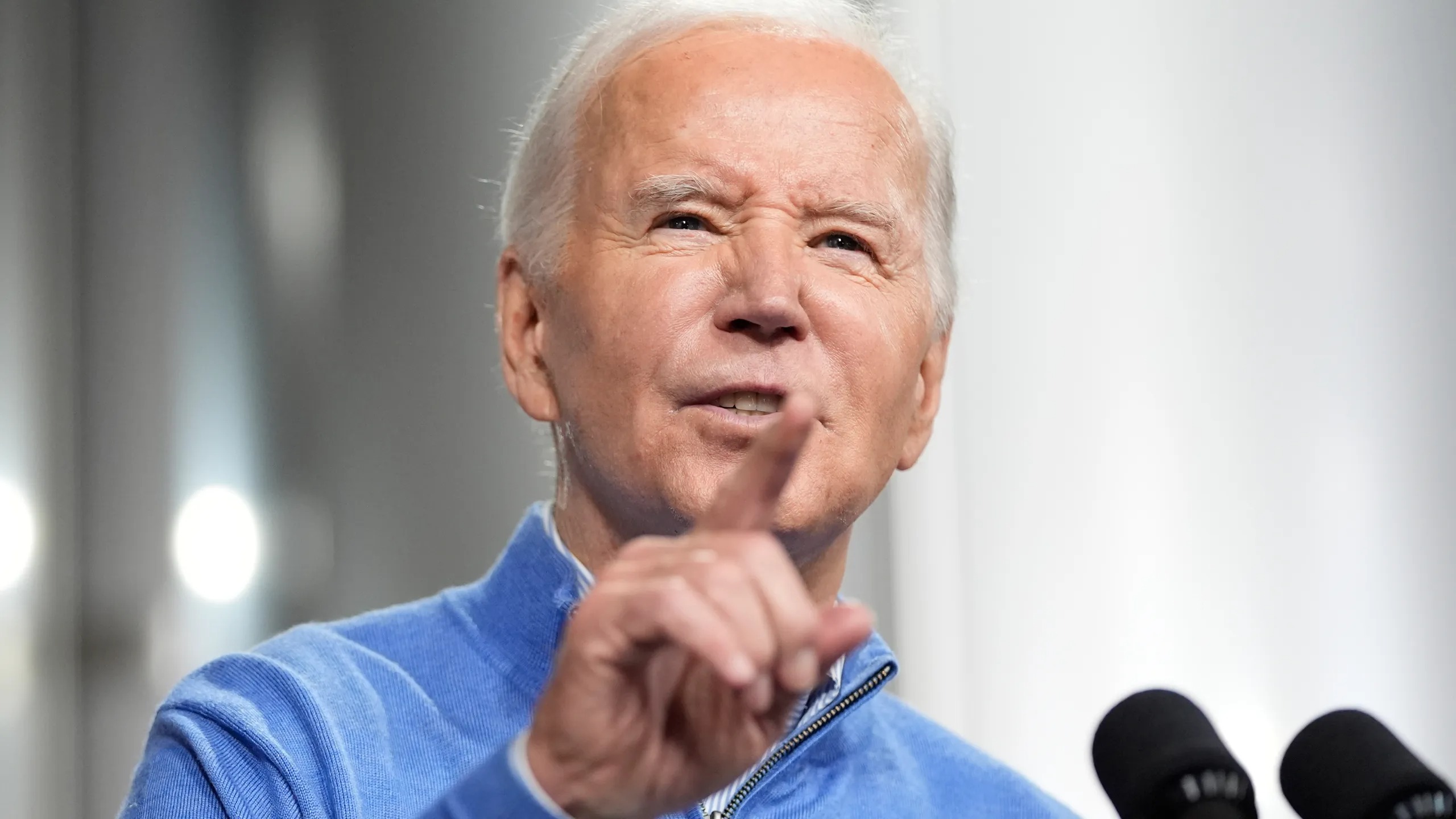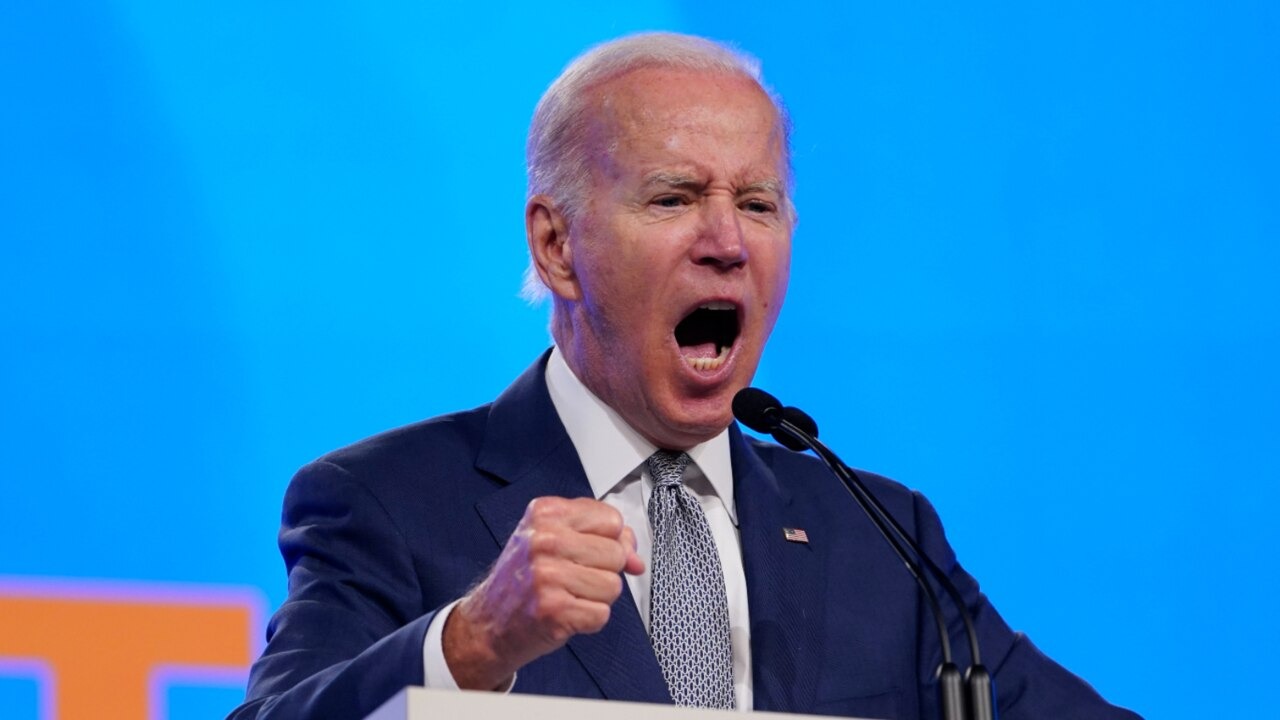A recent poll indicates that a growing segment of U.S. adults question President Joe Biden’s mental acuity and fitness for the job, setting the stage for his upcoming State of the Union address to serve as a critical moment in his potential bid for a second term.
Despite criticisms of his lackluster campaign and signs of age-related cognitive decline, Biden holds a slim lead over former President Donald Trump in the poll.
The survey, conducted by The Associated Press-NORC Center for Public Affairs Research, reveals that roughly 6 in 10 adults lack confidence in Biden’s ability to serve effectively as president, a slight increase from previous polling. Similarly, a significant portion of respondents express doubt about Trump’s mental capability.

Joe Biden (Credits: FOX 5 San Diego)
With both candidates well beyond retirement age, the upcoming election appears to be a contest between two candidates facing questions about their age and cognitive abilities.
As Biden prepares to address the nation in his State of the Union speech, he faces significant challenges, including low approval ratings and discontent over his handling of various issues such as the economy, immigration, and foreign policy.
While Democrats largely support Biden, independents are more critical, and Republicans overwhelmingly favor Trump. The poll also highlights concerns about the candidates’ policies and the impact of their age on their ability to effectively govern.
Some voters, like retiree Paul Miller, express reluctance to support either candidate due to their age, suggesting a desire for alternative options.
Biden’s age has been a focal point of criticism, particularly following a special counsel’s report that raised questions about his memory and cognitive abilities. Despite efforts to deflect concerns with humor, Biden’s age remains a significant issue overshadowing his policy achievements.
Looking ahead, many voters are considering the vice presidential candidates, recognizing that the vice president could play a crucial role in the future administration. Overall, the poll underscores the importance of age and cognitive ability in shaping voters’ perceptions and decisions in the upcoming election.























